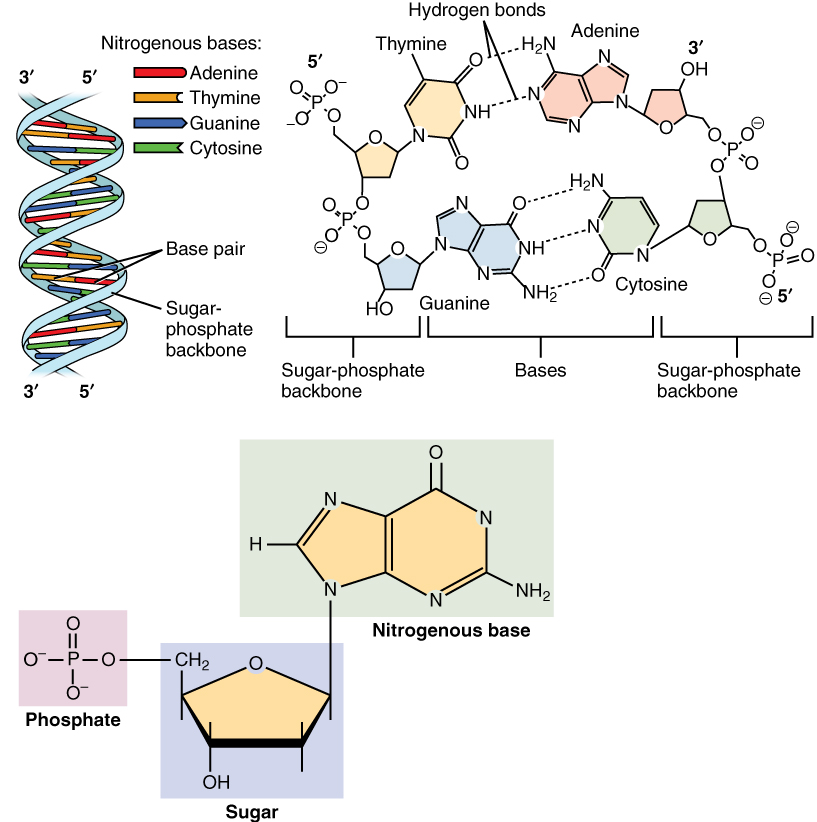
DNA provides instructions for making Proteins

DNA is essential to life and plays a fundamental role in the creation of proteins from basic amino acids. DNA is made up of four nucleic acids; adenine (A), thymine (T), guanine (G) and cytosine (C). These nucleic acids bind together to form a double-stranded helix, creating the ‘ladder-like’ structure of DNA.
DNA provides a unique set of instructions for the formation of proteins. This is achieved through a complex process involving transcription and translation. During transcription, the coding regions of DNA (specifically the sequences of A, T, G and C) are used as a template for the production of messenger RNA (mRNA). The mRNA is then translated into amino acids via proteins called transfer RNA (tRNA). These amino acids are then synthesised into a variety of proteins depending on the sequence of the DNA.
So, while other molecules in our cells, such as fatty acids, play an important role in sustaining life, DNA is responsible for providing explicit instructions for the formation of the various proteins that are essential for all life. In combination, DNA and proteins are the two central components necessary for life as we know it.
In conclusion, DNA is much more than just the basic building block for life – it provides a unique set of instructions that direct the production of important proteins. Without these instructions, the proteins necessary for life would simply not exist.